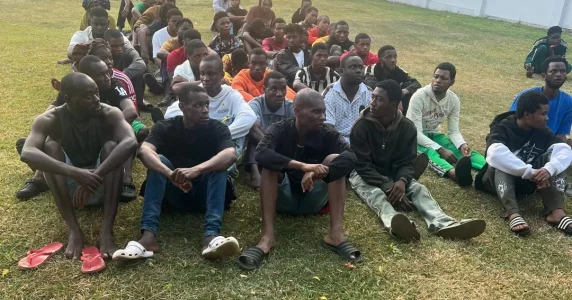
Niger imams demand the immediate sacking of the Minister of Women Affairs for filing a lawsuit against the speaker who planned to sponsor weddings of 100 orphan girls, escalating tensions over the controversial initiative.
In a highly charged situation unfolding in Niger State, Nigeria, a group of influential Islamic clerics has issued a stern request, calling for the immediate removal of the Minister of Women Affairs, Uju Kennedy Ohanenye. The demand comes in the wake of the minister's legal actions against the Speaker of the Niger State House of Assembly, Abdulmalik Sarkindaji, who had proposed sponsoring the weddings of 100 orphan girls.
According to reports, the imams convened an emergency meeting on Wednesday, May 15, where they leveled serious accusations against Minister Ohanenye. They alleged that her petition to the Inspector General of Police and subsequent lawsuit against the speaker directly threatened his initiative.
The Islamic clerics did not mince words, asserting that the minister's actions have rendered her unfit to serve in her capacity. They went a step further, accusing her of blackmail for suggesting that they intended to force underage girls into marriage – a claim they vehemently deny.
In an escalation of the already tense situation, the imams have issued a seven-day ultimatum to Minister Ohanenye, demanding a public apology. Failure to comply, they warn, will result in legal action against her.
The proposed orphan marriage initiative, spearheaded by Speaker Sarkindaji, has ignited a firestorm of controversy, with divergent views emerging from various stakeholders. While the imams have thrown their weight behind the speaker's plans, women's rights advocates and legal experts have raised concerns over potential human rights violations and the potential exploitation of vulnerable minors.
As tensions continue, calls for dialogue and a peaceful resolution have grown louder. The nation watches with bated breath as this delicate situation unfolds, with far-reaching implications for the protection of children's rights, gender equality, and the preservation of cultural traditions.




